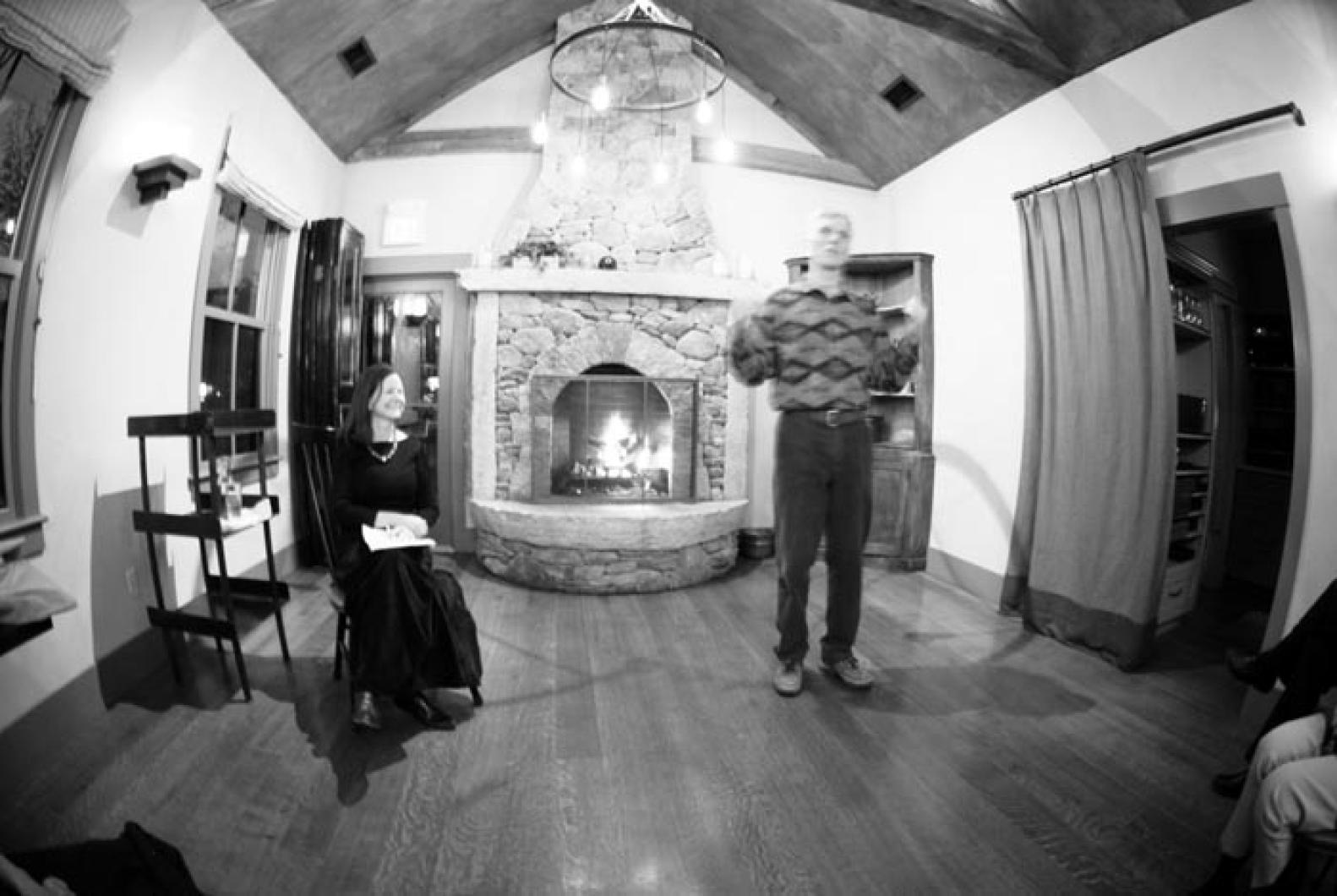By SAM LOW
The West Tisbury Library kicked off the first event in their Speakeasy series of talks by writers at State Road Restaurant on Wednesday afternoon.
Geraldine Brooks, Pulitzer-Prize-winning author of the recently published Caleb’s Crossing, was on hand to mingle informally with those who subscribed to the series and to speak about the craft of writing. She spoke in the restaurant’s dining room, a fire crackling in the hearth behind her. Her remarks were, as she told us, “not my normal stump speech” but rather specially prepared for her Vineyard audience. It was an intimate discussion of historical fiction by one of the best practitioners of the genre.
“As Henry David Thoreau once wrote,” Ms. Brooks told us, “the youth gets together his materials to build a bridge to the moon, or, perchance, a palace or temple on the earth, and, at length, the middle-aged man concludes to build a woodshed with them.”
But her career, she revealed, turned Mr. Thoreau on his head. She began by planning a career in journalism — by hoping to build a humble woodshed — and now finds herself on a journey to the heavens.
Her first professional encounter with words was at the Sydney Morning Herald in Australia where she was assigned to cover the racing beat — “horses that trot and gallop, even the dogs” — not as a writer but as a collector of facts for other writers. It was drudge work but instilled a powerful respect for factual details.
Continuing her theme, Ms. Brooks described her quest among historical documents to seek her way into two cultures that existed almost four centuries ago when Caleb, a Wampanoag native of Martha’s Vineyard, sought to cross from his world into that of the white men who had invaded it. She began her quest among yellowed documents — diaries, missionary reports and contemporary dictionaries — where she found, as an example, the precise word that a 17th-century midwife might use to describe a fetus — a “shapeling.”
But seeking facts is just the beginning, “the indispensable framework into which you pour your ideas. The better the framework, the more daring your design can be,” she said.
Now, as a writer of historical fiction, Ms. Brooks has embarked on her own version of Thoreau’s “bridge to the moon” — a journey into a creative world in which fact and fiction merge in a quest for truth.
“My ambition,” she told us, “has slipped all worldly bonds.”
The next event in the Speakeasy series is Nov. 29 and will feature Tony Horwitz, whose newly published book Midnight Rising chronicles John Brown’s bloody raid on Harpers Ferry and the turbulent world just before Lincoln’s election and the Civil War. (An excerpt from the book appears on Page One-A in today’s edition.)
The final event will be Jan. 4, when award-winning poets Fanny Howe and Jennifer Tseng will lead the Speakeasy. Ms. Howe was the recipient of the 2009 Ruth Lilly Poetry Prize and has won awards from the National Endowment for the Arts, the National Poetry Foundation, and many other organizations. Ms. Tseng has been a fellow at the Fine Arts Work Center in Provincetown, and has taught Asian American Studies and Creative Writing at UCLA and Hampshire College.
The events begin at 5:30 p.m. and are a benefit for the library building project; the cost of the events is $125 each, or $300 for all three. For more information call Carol Brush at 508-693-3489.




Comments
Comment policy »